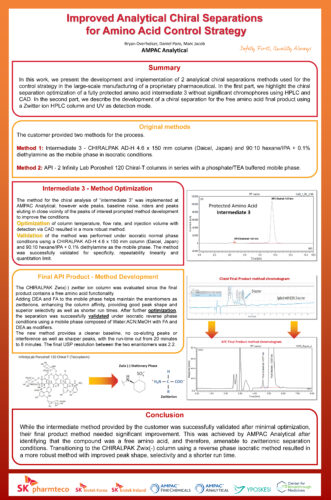Newsletter Signup Form
Please note: access to some items requires completing a form.
Webinars
- NEW! Control Strategies and Method Development for Nitrosamines in APIs and Drug Products
(video courtesy of TIDES USA Oligonucleotide and Peptide Therapeutics Conference and their team)
For those who could not make the 2023 TIDES USA conference and missed the stellar presentations, we have a special treat! With video courtesy of TIDES USA Oligonucleotide and Peptide Therapeutics Conference and their wonderful team, we are now able to make AMPAC Analytical Director Shankar Sankaran‘s presentation available! His informative video covers:- What technologies are used for nitrosamine testing?
- How do we establish/validate methods for screening and routine analysis of nitrosamines?
- What are the challenges associated with nitrosamine method development?
- What are some strategies for establishing test methods for drug-derived nitrosamines?
- A look at some illuminating case studies.
- Genotoxic Impurities (webinar)
Brochures
-
- AMPAC Analytical Services Brochure (a general overview)
- X-Ray Diffraction



